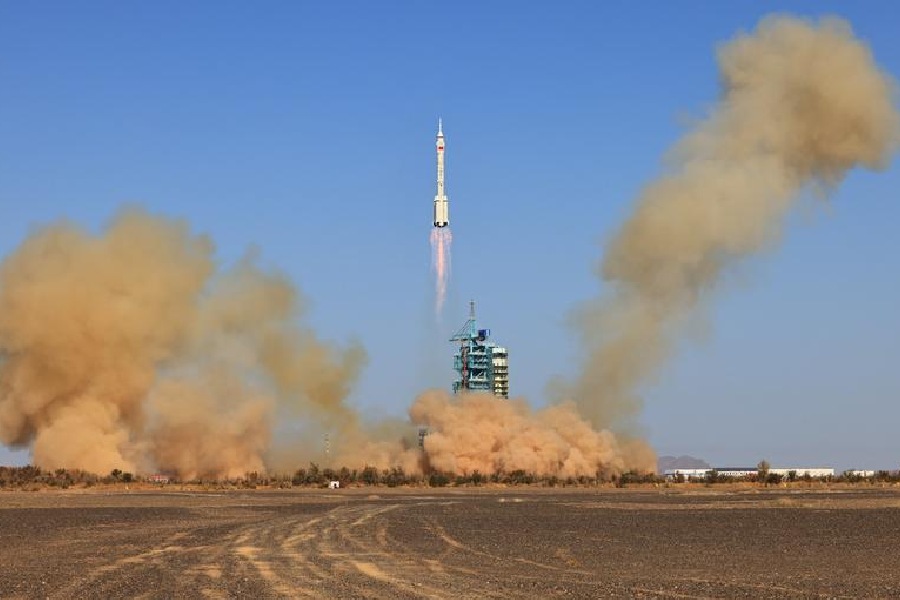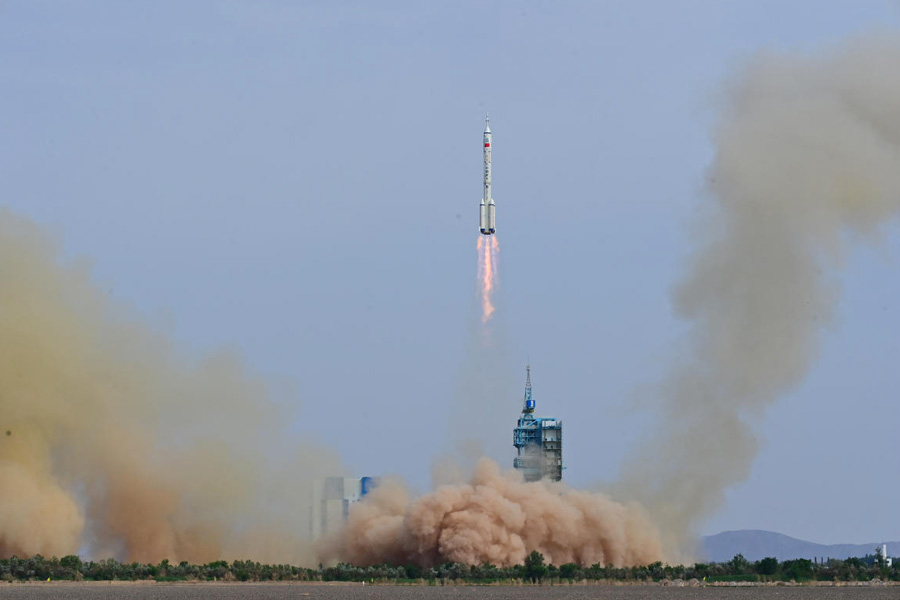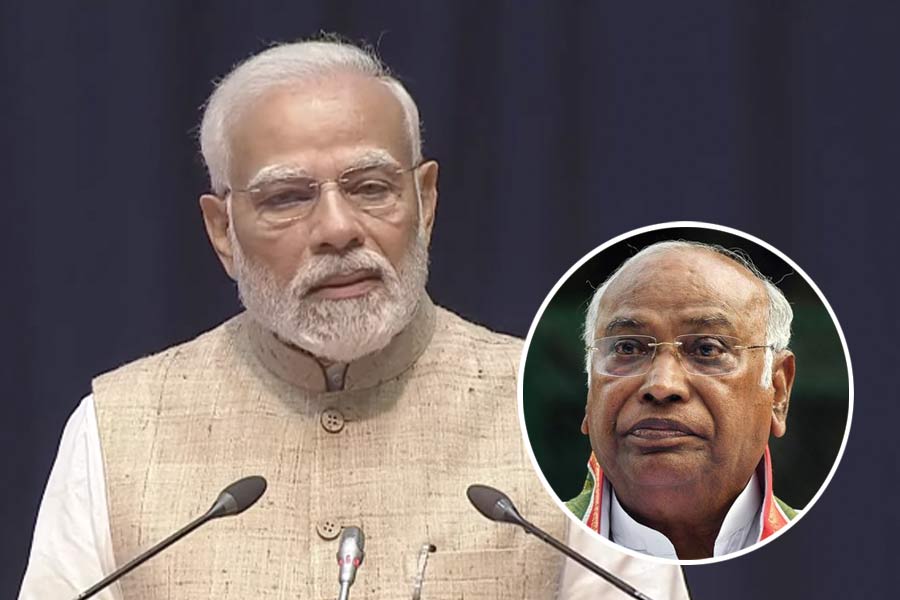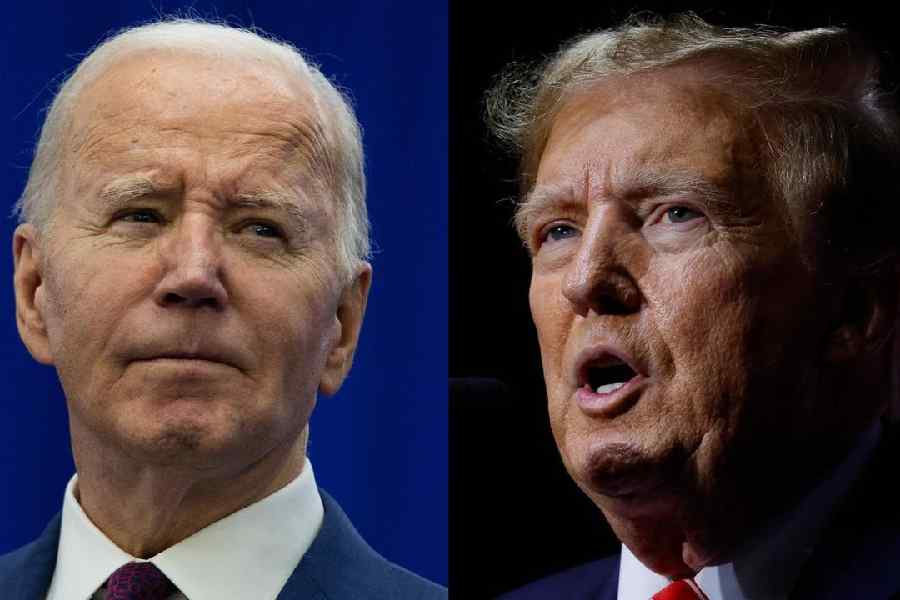The spacecraft Shenzhou-17, or "Divine Vessel", lifted off at 11:13 a.m. local time (0313 UTC/GMT) on Thursday from the Jiuquan Satellite Launch Centre, on the edges of China's Gobi Desert.
"The spaceship, atop a Long March-2F carrier rocket, blasted off from the Jiuquan Satellite Launch Center in northwest China," state news agency Xinhua reported.
The six-month mission is headed by Tang Hongbo, 48, a former air force pilot. He was on the first crewed mission to the space station in 2021. Accompanying him are first-time space travelers Tang Shengjie, 33, and Jiang Xinlin, 35.
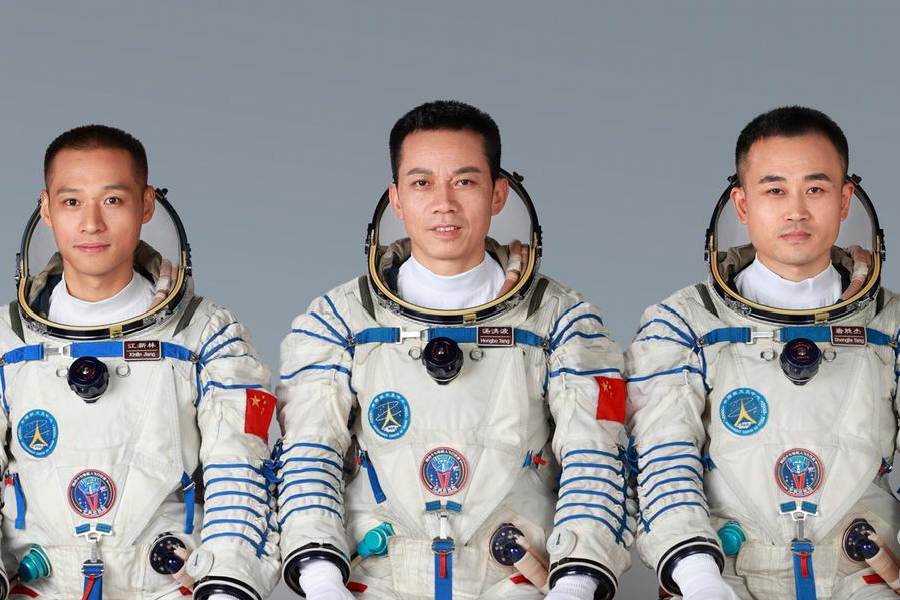
Astronauts Tang Hongbo, Tang Shengjie and Jiang Xinlin are aboard the Shenzhou-17 Deutsche Welle
Ahead of the launch, the astronauts bid farewell to observers at a send-off ceremony on Thursday morning.
En route to Tiangong space station
The crew is the youngest ever to depart for the orbiting Tiangong space station as part of a China's program to send its taikonauts to the lunar surface.
The space station, completed in 2022, can accommodate three astronauts at an orbital altitude of up to 450 km (280 miles).
The astronauts from Shenzhou-17 are set to take over from the Shenzhou-16 team — Jing Haipeng, Zhu Yangzhu, and Gui Haichao — who are scheduled to return to Earth on October 31.
Space race
Under President Xi Jinping, China has invested billions of dollars into its military-led space program.
Beijing is planning to place astronauts on the moon before the end of the decade as it competes with the US and Russia for outer space supremacy.
On Wednesday, Beijing announced plans for a new deep-space telescope, although the timeline for installation remains unspecified.
In 2003, China sent its first manned space mission becoming the third country after the former Soviet Union and the US to put a person into space using its own resources.

